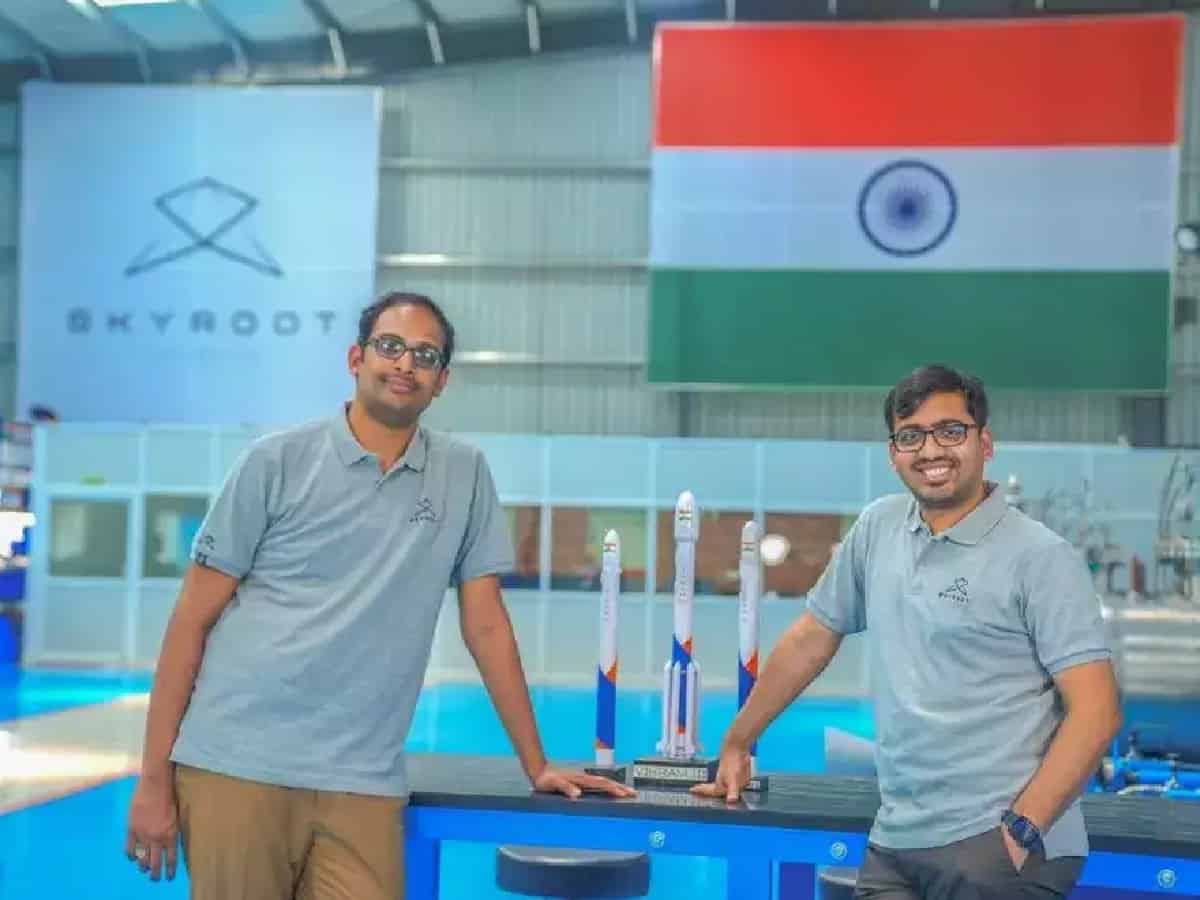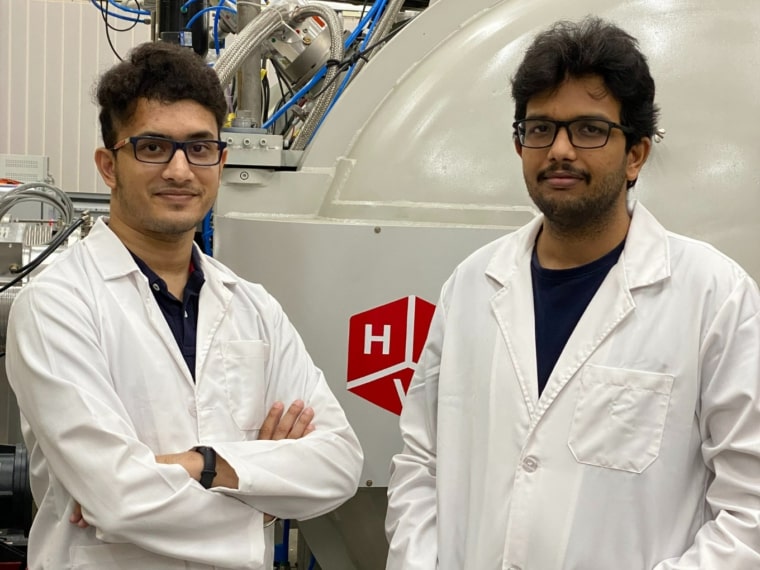(November 28, 2023) From launching Chandrayaan 3 in July, to sticking its perfect landing on the Moon’s south pole, and launching a mission to study the sun – the Indian Space Research Organisation has just witnessed what we can safely call the most successful year. Although ISRO didn’t have a traditional beginning and faced significant financial constraints, it has emerged as one of the world’s most successful space agencies. Remarkably, this achievement has not only transformed ISRO but has also inspired countless aspiring youngsters who wish to take the Indian flag to space one day.

In recent years, India’s space technology startup ecosystem has experienced significant growth. Nevertheless, 2023 marked a milestone year as various private entities entered the scene by launching their own satellites. According to the most recent Economic Survey, India now boasts a total of 104 space startups and 368 space technology companies. With the industry poised to attract over $300 million in investments in 2023, Global Indian examines the prominent participants in India’s space technology ecosystem.
AgniKul Cosmos
Their journey began at IIT Madras in 2017 with just ₹3 crores in seed funding. Back then, Srinath Ravichandran and Moin SPM had just one goal: to build and launch a space rocket within a few years. Although they faced many challenges over the last six years, these two young individuals successfully established India’s first private launchpad and mission control center at the Satish Dhawan Space Centre in Sriharikota in November 2022. With a total funding of $34.5 million, AgniKul is now one of India’s most respected space startups.


Srinath Ravichandran and Moin SPM, founders, AgniKul Cosmos
The facility at Sriharikota has a launchpad and mission control center. It’s special because it has India’s first rocket engine that was made using 3D printing. They built this facility in just two months. Soon, they’ll use it to launch India’s first private spaceflight into orbit. “We are trying to get the first few launches this year. These would be developmental flights (test launches). Then scale to a commercial launch in 2023,” Srinath had said during a press interaction, adding, “There are going to be big breakthroughs in the Indian space industry in the next few years. The gestation period is a bit long, but I think we are already there. The government being upfront is going to encourage a lot of people to give it a shot. ISRO is helpful and it also has the attention of the Prime Minister’s Office. India will be among the top three in the next five years.”
Skyroot Aerospace
One of India’s most accomplished space companies, Skyroot Aerospace, has finally launched the Vikram-S after much waiting and several years of effort. This achievement is a big step forward for India’s private space industry. The rocket, which is a single-stage design with a spinning motion and uses solid propellant, can carry a payload weighing about 550 kilograms. It’s carrying three customer payloads, including one from a customer outside of India. This six-meter-long rocket was built in just two years and features a core structure made entirely of lightweight carbon fiber.


Pawan Kumar Chandana and Naga Bharath Daka, founders, Skyroot Aerospace
Two friends, Pawan Kumar Chandana and Naga Bharath Daka, founded a company in Hyderabad. Their goal is to become the world’s leading provider for launching small satellites within the next five years. Speaking about their ambitions and plans, Pawan recently said in an interview, “2023 is just the beginning of an era of SpaceTech, which would be the next trillion-dollar industry. We are more like a cab to space, where we can offer dedicated rides to required orbits to satellite customers while companies like SpaceX are focused on building very large vehicles.”
Dhruva Space
In 2012, while ISRO was busy with the Mars Orbiter Mission (Mangalyaan), a man named Sanjay Nekkanti had a vision. He dreamed of creating India’s first private satellite and enabling organizations to harness the potential of small satellites. This dream led to the birth of Dhruva Space, India’s inaugural space technology company. Later, the founder was joined by his friends from BITS-Pilani – Abhay Egoor, Krishna Teja, and Chaitanya Dora. Fast forward to 2022, the company reached a significant milestone when it successfully deployed its satellite orbital deployer on the PSLV C53 in June, followed by the launch of its two Thybolt satellites on PSLV C54.


Sanjay Nekkanti, founder, Dhruva Space
This startup, which operates in both Hyderabad, India, and Graz, Austria, provides versatile satellite platforms that can be customized for various applications. Their goal is to make space access quicker, more dependable, and more affordable. Dhruva Space also offers a comprehensive solution, allowing clients to own and manage space-based assets in one place. Speaking to the press after launching two satellites in November last year, Abhay said, “We are looking to raise or invest about USD 20 to 25 million over the next two years where this amount of capital would be used to invest and build an infrastructure facility for assembly, integration, and testing of satellites up to 100 kg class. We are exploring setting up the same facility in Hyderabad. We are already in conversation with parties.”
Pixxel
Back in 2019, while still in college, two 20-year-olds, Awais Ahmed and Kshitij Khandelwal, made an unconventional choice. Instead of pursuing a traditional job, they decided to venture into something new. Although their decision might not have had unanimous support at first, the entire nation celebrated when these two young entrepreneurs successfully launched their satellites, named Shakuntala, into a low Earth orbit (LEO) using a SpaceX Falcon 9 rocket in April 2022. Pixxel continued to make strides in the space industry by launching their second satellite on Isro’s Polar Satellite Launch Vehicle (PSLV) C54 mission.


Awais Ahmed and Kshitij Khandelwal, founders, Pixxel
Giving an insight into their company and its mission, Awais said, “Our one-line model is to make satellite imagery data useful. This is why we process the data once we have it beamed down from the satellites. Once the data is ready, there are a lot of companies that know how to analyse satellite imagery. There is Orbital Insight, there are precision agricultural companies and hedge funds that buy this data to extract insights from this. They are going to be our customers. We will be working with banking institutions, agriculture, mining companies, oil and gas companies, and defence organisations. All of them are going to be our customer base.”
Bellatrix Aerospace
It took a while for them to establish themselves in the space technology sector, but once they grasped the dynamics, they’ve been excelling in every aspect. Founded by two young entrepreneurs, Rohan M Ganapathy and Yashas Karanam, the Bengaluru-based company, Bellatrix Aerospace, is gearing up to conduct tests on their propulsion technologies, which are responsible for directing satellites to their intended locations, in 2023. Their ambitious plan includes launching a “space taxi” service by 2024.


Rohan M Ganapathy and Yashas Karanam, founders, Bellatrix Aerospace
The startup has introduced a cutting-edge facility to accelerate its prototyping and model production, complementing its testing lab affiliated with the Indian Institute of Science (IISc). In an intriguing move, the company is set to invest $76 million in the establishment of a local Research and Development (R&D) center and manufacturing plant in Bengaluru. This new facility is anticipated to produce a variety of thrusters, including the hall thruster, microwave plasma thruster, nano thruster, and environmentally-friendly propulsion systems.




